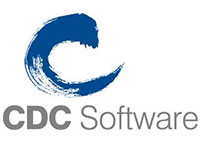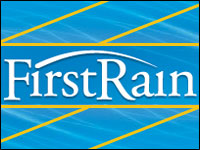
This story was originally published on Sept. 26, 2008, and is brought to you today as part of our Best of ECT News series.
When it comes to security software, who really knows what lurks in the minds of today’s users? It appears that most people seem to choose their security products based on a lot of other factors beyond their ability to protect their computers from the malicious forces at work.
Whatever the label on the box or the icon on the screen, it also appears that perfection in security software is an elusive goal — as is brand loyalty. While the majority of folks would like the job of securing their systems to be an out of sight/out of mind proposition, the reality is that any imperfections in security software, no matter how small, can become glaringly evident in short order. It only takes one virus attack, system slowdown or incident of poor customer service to turn a satisfied user into a disgruntled one that is ready and willing to swap out their software for another.
All the Small Things — and Big
Routine features such as automatic registrations, persistent popups and system slowdowns are also some of the top issues that security software users say they love to hate. And despite the fact that systems often come with a prepackaged offering for trial use, educated users will take the trouble to uninstall what they don’t like, and purchase and install the protection product they prefer, Ryan Sherstobitoff, chief corporate evangelist for Panda Security in Glendale, Calif., told CRM Buyer. “Overall, our numbers show that 17 percent of consumers switch vendors each year.”
Another make-or-break issue is overall PC performance, Sherstobitoff said. “Not all OEM (original equipment manufacturer) branded software provides great performance, and a lot of offerings will suck up PC system resources. That’s becoming a primary concern for users, and is one of the big reasons they will uninstall any trial versions on their system.”
For small office environments, management of anti-virus software installation and usage can be a headache unto itself — which is why business users will often opt for managed services so they don’t have to deal with the hassle of individually installed software on multiple machines. “According to analysts, businesses don’t want to deal with the costs incurred with installing and managing the software themselves, and more than half are moving to a security-as-a-service model,” Sherstobitoff said.
“The problem I’ve heard and seen from my clients range from installation issue to upgrade problems, difficulty (or impossibility) of removing old versions, and system overhead,” Ken Dwight, known as The Virus Doctor, an antivirus consultant, author and trainer from Houston told CRM Buyer.
He added that many of the off-the-shelf product suites have gotten much better in terms of performance in the 2007/2008 versions and are “an acceptable choice these days for users who don’t want to do any further research and just pick a security product off the shelves of their favorite retailer. When it comes to Internet security suites, I generally recommend ESET or Norton.”
What People Want
In Dwight’s mind, a main loyalty driver is simple convenience. “That’s what people really want. If they’re not seeing problems, come renewal time they figure it’s easier to go ahead. Another pain point, however, is the renewals process itself. Often it doesn’t work or doesn’t install properly and I hear a lot of issues around that.”
The highest loyalty ratings he has seen are with Trend Micro’s Internet Security Suite, which includes PC-cillin Anti-Virus. He credits the tech support as a major reason for the satisfaction ratings. The highest rated anti-virus program in his books is Nod32 from ESET. “Great program, low overhead, very effective at preventing viruses from getting through in the first place. Another brand new contender with great reviews is VIPRE from Sunbelt Software.”
All else being equal, consumers are surprisingly driven by the price point. Despite the fact that security software is cheap insurance and given the importance of security functions, cost remains a driving factor behind their software selections.
Noel Griese, principal with Anvil Brokers/Anvil Publishers in Atlanta, has gone through several security products for his small business operation and is always on the lookout for offerings that are kind to his budget. The things that have driven him around the bend he said are the automatic downloads that slow down his systems during the busiest part of his working day, viruses getting through, lack of customer support and yes, cost. He is currently using Windows Live OneCare, which he said has not caused him any grief so far. “I like everything to be out of sight and mind. As long as it works, I’m happy.”
What People Need
It appears by all accounts that achieving stellar satisfaction ratings requires some re-engineering on the part of marketers and developers. Randy Abrams, director of Technical Education for ESET in San Diego, has seen a lot of security products in his many years of research and development work. “In terms of customer satisfaction, I think the biggest pain point is the fact that product vendors are always promising more than they can deliver. No product can keep anyone 100 percent safe — but that’s not what the marketing departments say. What sets one apart from another is how it can balance system impact, detection capabilities and false positive rates.”
Whether talking about a person on their home PC or the enterprise, Joshua Corman, principal security strategist for IBM Internet Security Systems in Atlanta believes that there is much more that vendors need to do to reduce the cost and complexity of security offerings. “They need to design solutions that address risk rather than simply cater to what people are looking for. Customers may say they want security to be ubiquitous and transparent. The problem is invisibility is not an indicator of the effectiveness of the product.”
So as far as wanting something that stays out of sight/out of mind, that’s not exactly the right attitude for security solutions, Corman told CRM Buyer. “Not hearing or seeing things is not necessarily proof that you’re safe. Today’s threats manifest themselves very differently. Profit and politics have overtaken prestige as a motive for doing harm, and attacks are much more dangerous. [Security] is definitely not an area where you should be cutting costs. Rather you need to figure out how to balance the cost of the solution with the potential risk.”
And as the world changes, when it comes to true customer satisfaction, “It shouldn’t be about feeling secure, but about being secure,” Corman said.























































